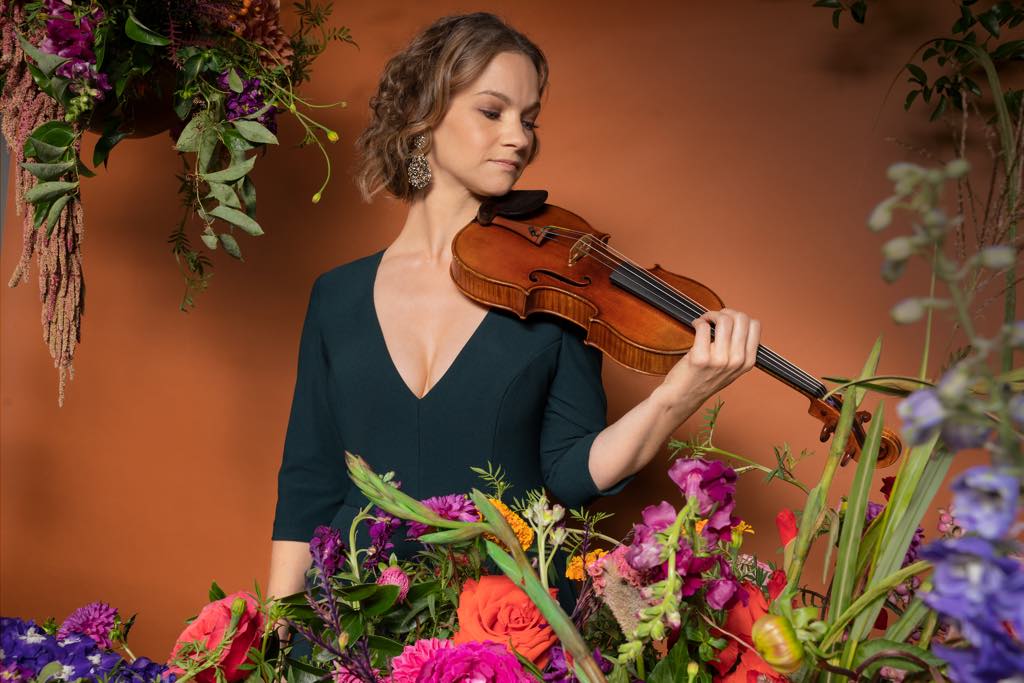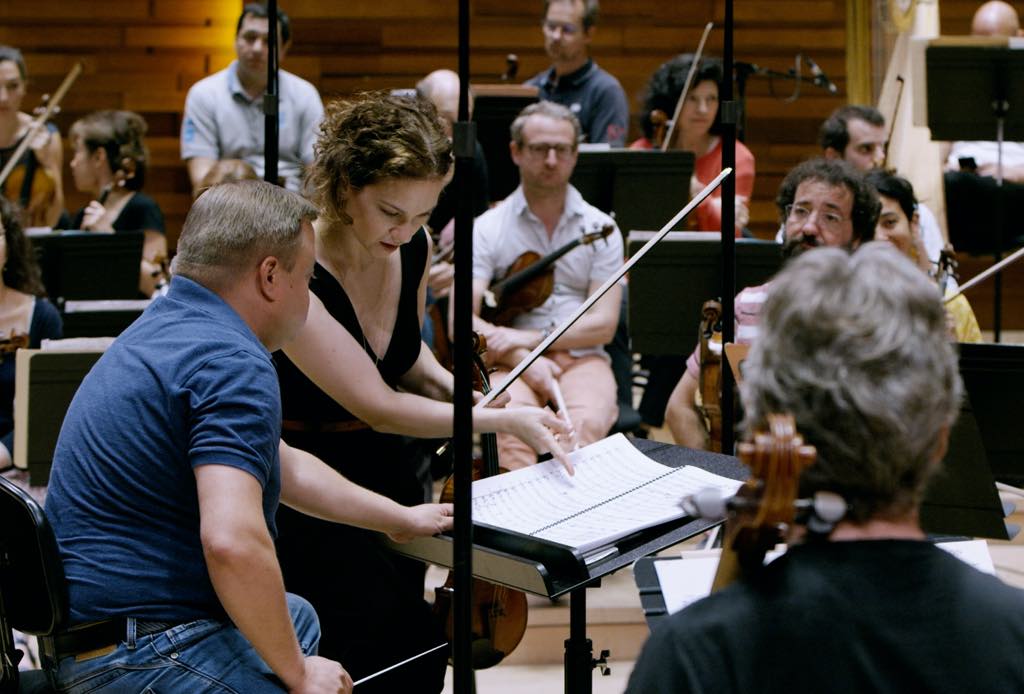
The moment music label Deutsche Grammophon announced a new album by violinist Hilary Hahn entitled Paris, I leapt at the chance to bring it to the attention of Paris Update’s readers. Don’t expect to hear a medley of string arrangements of Edith Piaf songs, however: this is a compilation of serious classical music of the highest quality.
At first glance, the title would seem to be something of a misnomer. What do an American violinist, a Finnish conductor (Mikko Franck), and a musical program dominated by Russian and Finnish music have to do with Paris? The answer is that all of the non-French works had their world premieres in Paris, and this recording represents the culmination of the long association that Hahn and Franck have had with the Paris-based Orchestre Philharmonique de Radio France. And, as Hahn points out in the accompanying booklet, her own violin is Parisian, built by the renowned violin-maker Jean-Baptiste Vuillaume in 1865.
The record opens with the only piece by a Parisian composer, Ernest Chausson’s opulent Poème for violin and orchestra, written for and first performed by the great Belgian violinist Eugène Ysaÿe in 1896. Apart from a few short orchestral episodes, the violin remains at the forefront of the music, with Hahn immediately displaying her formidable technique and sumptuous tone.
The best-known piece of the recording is Sergei Prokofiev’s first violin concerto, which was premiered in Paris in 1923, six years after its composition in Russia during the politically charged period of 1917, between the February and October revolutions, which led to the establishment of the Soviet Union. The lyricism of the piece is beautifully brought out by Hahn and the orchestra, with the mesmerizing combination of athleticism and hushed string writing in the opening movement, the muscular virtuosity of the Scherzo, and the serenity of the final movement, which is handled to perfection by conductor and soloist.

The final work, Deux Sérénades, written for Hahn by the Finnish composer Einojuhani Rautavaara and first performed and recorded at the time of the February 2019 world premiere, has particularly poignant associations for both Hahn and Franck (who has long been a champion of the composer’s music), as Rautavaara died before completing the orchestration for the second serenade.
The two pieces, while relatively unadventurous in their surprisingly traditional tonality, are deeply touching for their sincerity and sheer love of life (the second piece is entitled “Sérénade pour la Vie,” or “Serenade for Life”). The first of the two pieces, “Serenade for Love,” brings out the best in soloist and orchestra, with its simplicity and beauty of tone, and provides a fitting epitaph for the composer.
Although by no means a straightforward musical evocation of the City of Light, Paris not only showcases Hilary Hahn’s glorious violinistic talents but also offers an auditory reminder of a few of the many significant cultural events that have taken place in the city. Like Paris itself, the album deserves frequent revisiting.
Favorite